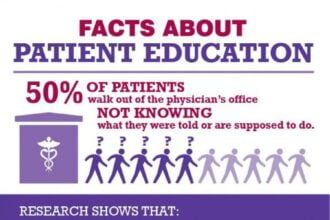Resistance to antibiotics is currently one of the world’s most pressing issues related to public health. Almost all classes of common and potentially deadly bacteria have become strong and less responsive to antibiotic treatments over the years. In India, some cases of infections resistant even to last-resort antibiotics such as colistin have been reported. Though the number of such cases is currently very low or even rare, the trend in becoming worrisome.
Resistance to antibiotics is currently one of the world’s most pressing issues related to public health. Almost all classes of common and potentially deadly bacteria have become strong and less responsive to antibiotic treatments over the years. In India, some cases of infections resistant even to last-resort antibiotics such as colistin have been reported. Though the number of such cases is currently very low or even rare, the trend in becoming worrisome.
In a 2014 research study, which analyzed the cases of infections that cannot even be treated by colistin, it was found that 4-5% of bacterial infections were recorded in Delhi, India’s capital city, and 36 of 799 cases of drug-resistant bacterial infections tested in the Indian city of Pune, were found to be colistin resistant. Some more cases of colistin resistant bacterial infections have also been reported in other cities in the country.
Colistin resistance is not yet an issue to be worried about across other corners of the world. Elsewhere, it is the issue of resistance to carbapenem, the strongest class of antibiotics currently available in the market, which is on a constant rise. Colistin is prescribed in cases where infections remain untreated even with carbapenem.
The Global Pandemic of Antibiotic Resistance and its Implications on India
Recent research findings published by the Center for Disease Dynamics, Economics & Policy (CDDEP), which analyzed global trends in drug resistance across 39 countries and the use of antibiotics in 69 countries, show a worrisome rise in drug-resistant infections and the use of antibiotics in India.
According to the 2014 report, nearly 57% cases of infections caused by the superbug Klebsiella pneumonia were found to be resistant to antibiotics carbapenems. This is a significant rise from resistance found in 29% cases in 2008. Compare this with Klebsiella infections in United States and Europe and the critical nature of the issue can be understood: carbapenems were found to be effective against 95% cases of Klebsiella infections in most of Europe and 90% cases in the United States. For other drug classes such as cephalosporins, aminoglycosides, and fluoroquinolones, and some others, Klebsiella was found to be resistant in more than 60% cases in India.
What Seems to be Causing the Issue?
The improper use of antibiotics is the chief factor that leads to antibiotic resistance. Every time a person takes an antibiotic, some of the sensitive bacteria in the body are killed, but some resistant strains of bacteria may be left in the body, only to grow and multiply. Another factor that leads to antibiotic resistance is not taking doses of antibiotics at the times and in the proportion that a doctor has prescribed.
In India, the easy availability of many antibiotics as over-the-counter (OTC) drugs, over prescription, and the lack of awareness about proper (or rather the improper) use of antibiotics and their ill-effects on health are the chief reasons leading to the high level of antibiotic resistance.
As existing antibiotics continue to lose their effect at an alarming speed, and the development of any new antibiotic classes has remained almost non-existent over the past many years, it looks like antibacterial resistance will be the health catastrophe of the near future if no new developments are observed in the fight against super bugs.
Why is so Little being done to Address this Issue?
Many reports continuously surface to raise an alarm about the serious consequences of antibiotic resistance from across the globe. However, there is still a lack of sufficient data regarding the burden and enormity of the issue, or its direct impact on the society, health care systems, or individuals. This could be a major reason why little response to this serious threat has been received from governments, consumers, politicians, and healthcare reformers. The significant scientific challenges and the very few incentives being granted for the development of antibiotics is also a key reason why only two antibiotic classes emerged in the market after 1970s, until now.
Aren’t Bacteriophages Promising?
Some reports regarding the efficiency of bacteriophages (also called phage or bacteria virus), the naturally occurring viruses that infect bacteria, have also emerged in recent years. Bacteriophages have sometimes been called as possible tools for the future fight against superbugs. Discovered in the early 20th century, the clinical use of these microbes is almost absent. This is partly because bacteriophages are large biological agents and thus their administration is not as straightforward as the administration of other small-molecule antibiotics. There is also the possibility that bacteriophages and bacteria can mutate, which would render the latter ineffective. The way bacteriophages kill bacteria is also problematic: they lyse the cell or cause it to burst, thus leading to the possible release of nasty toxins from the cell and increasing the possibility of untoward side effects.







